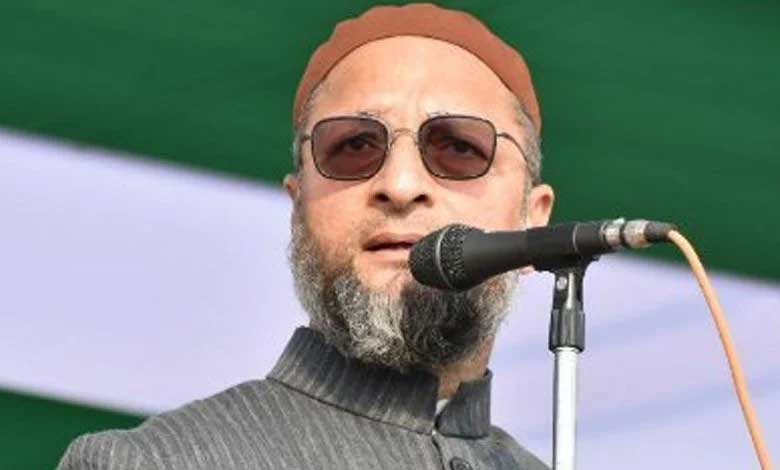Asaduddin Owaisi Faces Legal Notice from Bareilly Court Over “Jai Palestine” Remark in Lok Sabha
The incident has sparked widespread debate, with many questioning the legality and appropriateness of raising such slogans in the Indian Parliament.

Hyderabad: Hyderabad MP and AIMIM leader Asaduddin Owaisi has been issued legal notices by a Bareilly court for his controversial slogan supporting Palestine during his oath-taking as a Member of Parliament.
The incident has sparked widespread debate, with many questioning the legality and appropriateness of raising such slogans in the Indian Parliament.
Table of Contents
What Happened During the Oath-Taking?
The incident occurred when Asaduddin Owaisi was sworn in as a Member of Parliament in the Lok Sabha. While concluding his oath, Owaisi reportedly shouted, “Jai Palestine!”—a statement that immediately garnered attention both within the Parliament and across the nation.
The remark was seen as a strong political stance in favor of Palestine, a subject that remains sensitive in international relations and domestic politics.
Legal Action Initiated in Bareilly
A legal petition was filed by Veerendra Gupta, a Bareilly-based lawyer, challenging the legality of Owaisi’s actions. Gupta argued that raising such slogans in Parliament is inappropriate and violates the sanctity of the institution. He claimed that Owaisi’s remarks were provocative and could potentially harm India’s diplomatic relations.
The petition prompted the Bareilly court to issue a notice to Owaisi, directing him to appear before the court on January 7, 2024. The legal notice has brought the issue into the limelight, sparking widespread discussions about freedom of expression, parliamentary decorum, and the intersection of personal beliefs with public duties.
Reactions from Political Circles
The incident has triggered mixed reactions from political leaders and analysts. While some leaders from the opposition have defended Owaisi’s right to express his views, others, including members of the ruling party, have strongly criticized his actions.
A senior BJP leader from Uttar Pradesh remarked, “The Parliament is not a place for personal or political slogans. Such behavior undermines the dignity of our democratic institutions.”
On the other hand, Owaisi’s supporters argue that his statement reflects solidarity with global issues and does not violate any parliamentary rules.
The Broader Context of “Jai Palestine”
Owaisi’s “Jai Palestine” slogan is rooted in his consistent advocacy for Palestinian rights. Over the years, he has been vocal about India’s foreign policy shifts and the need for solidarity with Palestine amidst ongoing conflicts in the Middle East. His remarks resonate with a section of the Indian population that empathizes with Palestine’s struggles.
However, critics argue that expressing such views in Parliament—especially during an oath-taking ceremony—is both inappropriate and unnecessary. They believe that Owaisi’s actions may set a precedent for introducing divisive or international political issues into domestic political forums.
Legal Implications and the Road Ahead
The case has raised important questions about the boundaries of free speech, especially in sensitive forums like the Parliament. Legal experts suggest that the court’s decision could set a significant precedent for future cases involving political expression.
Owaisi’s legal team is yet to respond to the notice, and it remains to be seen whether he will appear before the Bareilly court as directed. Political analysts predict that the case could escalate into a larger debate about parliamentary rules and the extent to which personal beliefs can influence public duties.
Also Read | Asaduddin Owaisi Calls for Protection of Muslim Religious Sites in Parliament
Public Opinion Divided
Public reactions to the issue have been polarized. On social media, hashtags like #JaiPalestine and #OwaisiInCourt have been trending, with users expressing both support and criticism for the AIMIM leader. While some see Owaisi’s actions as a bold expression of solidarity, others believe they were a calculated political move aimed at gaining attention.
Conclusion
Asaduddin Owaisi’s “Jai Palestine” remark has reignited debates about freedom of expression, parliamentary ethics, and the influence of international issues on domestic politics. With the Bareilly court set to hear the case on January 7, 2024, the outcome will likely have significant implications for the MP and for broader discussions about decorum in Indian democratic institutions.
